22 F. high in the Twin Cities Tuesday.
32 F. average high on December 2.
38 F. high on December 2, 2013.
December 2, 1998: Albert Lea soars to a record-setting 67 degrees.
"...
Worldwide,
the 10-year average for weather-related losses adjusted for inflation
was $30 billion a year from 1983-92, according to insurance giant Swiss
Re. From 2004 to 2013, the cost was more than three times that on
average, or $131 billion a year...." - from a CBS News article featured below.
March-like December?
"If
the planet is warming why am I so cold?" A common refrain and as a
meteorologist I sympathize. It's human nature to look out the window and
assume it's like this (everywhere). Resist the urge.
Scientists
tell us there's a good chance 2014 will be the warmest year on record,
worldwide. Even warmer than 2010 and 1998. Earth has broken 6 monthly
heat records in 2014; 47 since 1992. The last monthly cold record was
set in 1916.
Was a harsh November (8.3F colder than average) an
omen of the winter to come - or evidence of Arctic warming and a new
level of jet stream volatility? It may be too early to answer that with
confidence, but the extended thaw I've been talking about is still
coming. 30s, 40s, even an outside shot at 50-degree warmth by
mid-December, as most of the snow in your yard melts away.
You may think I'm mad (I get that a lot) but the next 2-3 weeks may resemble early March, not December.
El
Nino is soaking California with flooding rains, turning steering winds
more westerly, re-routing bursts of Canadian air away from the USA.
Expect a thaw this weekend; by the end of next week I expect 40s, even a
few 50s over southwest Minnesota.
What a baffling pattern.
* ECMWF solution valid next Friday morning, December 12, courtesy of WSI Corporation.
9th Coldest November on Record. Check out this excerpt of a post from the
Twin Cities National Weather Service: "
November
2014 will be remembered as one of the top 10 coldest Novembers since
climate records began in the late 1800s. Average monthly temperatures
were around 8 degrees below normal. It was the 9th coldest November on
record for the Twin Cities and St. Cloud, and the 6th coldest November
on record in Eau Claire. The Twin Cities tied for the 2nd longest streak
of 32 degrees or colder (11 between November 10th and 20th) and the 2nd
most days at or below freezing for November (17).
.."
* maps above courtesy of Midwest Regional Climate Center.
Polar Thaw.
30s at the North Pole? Temperatures yesterday over the Arctic were more
than 3C warmer than average, another upside-down weather map with cold
air displaced south, over the USA. Which often happens during winter,
come to think of it. Everything still points to moderating temperatures
over the next few weeks as winds aloft blow more from the Pacific than
the nether regions of northern Canada.
Map above obtained using Climate Reanalyzer (
http://cci-reanalyzer.org), Climate Change Institute, University of Maine, USA.
More March Than December.
For 30+ years I've been telling anyone even vaguely interested in the
weather that things usually even out. Not always, but most of the time.
Severe cold is (usually) balanced by a swing in the opposite direction
before long as the atmosphere tries to regain equilibrium. By late next
week into the third week of December temperatures may run 10-20F warmer
than average. Depending on how much cloudiness and fog is generated by
this mild, moist Pacific surge we should easily see a few days of 40s; I
wouldn't be shocked to see a high of 50F close to home. And, rather
amazingly, most of the snow in your yard will be gone within 8 days,
give or take.
Slow Recovery.
Today will be chilly enough with afternoon highs peaking near 20F in
the Twin Cities. A thaw kicks in over the weekend; Sunday the milder
day, with 30-degree highs likely most of next week; maybe a day in the
40s by late next week. With this kind of a pattern (zonal, winds blowing
west to east) I don't see any storms of significance looking out 10-14
days. Meteogram: Weatherspark.
Intermission.
Not sure if this is Old Man's way of chilling out for a few weeks, but
GFS data shows a consistent thaw from December 10 to the 19th.
Temperatures aloft will be warm enough for rain. After the early season
pain it seems ridiculous to be talking about a brown Christmas, but
unless the pattern changes dramatically after 2 weeks I could envision a
scenario where we don't even have an inch of slush on area lawns, at
least in the Twin Cities. This will be a fairly amazing temperature
turnaround.
California's Pain is Minnesota's Gain.
Heavy rain in California is stark evidence that the pattern is finally
changing; it may be a symptom of El Nino pulling the storm track farther
south, turning a firehose of moisture onto SoCal as well as the Bay
Area. This will be the first of many storms to slosh into the west
coast; relatively mild air pushing 1,000 to 2,000 miles inland, warming
as it descends down the lee of the Rockies, keeping the Upper Midwest
unusually mild from the middle of next week into much of December.
60-hour NAM accumulated precipitation: NOAA and HAMweather.
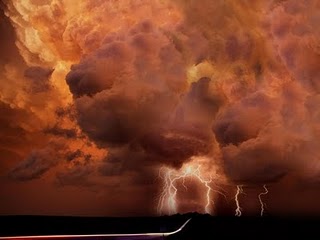 Americans Need To Prepare for More Extreme, Wet Weather
Americans Need To Prepare for More Extreme, Wet Weather.
USA TODAY has the story - here's the introduction: "
It's
not overhyping: More extreme, wet weather events are likely across the
USA, says National Weather Service director Louis Uccellini. "The
hypothesis is that warmer air can hold more water vapor, and you squeeze
that out over narrow areas, you're going to get very heavy
precipitation," Uccellini explains. As the Earth heads toward its
warmest year on record, that could mean even more moisture in the air..."
Study Models The Past To Understand The Future Of Strengthening El Nino. Here's an excerpt of an interesting story from The University of Wisconsin, Madison: "..
There have been some observations that El Niño has been changing,” says Liu, also a professor in the Nelson Institute Center for Climatic Research.
“Previous studies seem to indicate El Niño has increased over the last
5,000 to 7,000 years.” But unlike previous studies, the new model
provides a continuous look at the long history of El Niño, rather than a
snapshot in time. It examines the large-scale influences that have
impacted the strength of El Niño over the last 21,000 years, such as
atmospheric carbon dioxide, ice sheet melting and changes to Earth’s
orbit..."
Photo credit above: "Using
state-of-the-art computer models maintained at the National Center for
Atmospheric Research, researchers determined that El Niño has
intensified over the last 6,000 years. This pier and cafe are in Ocean
Beach, California." Photo: Jon Sullivan.
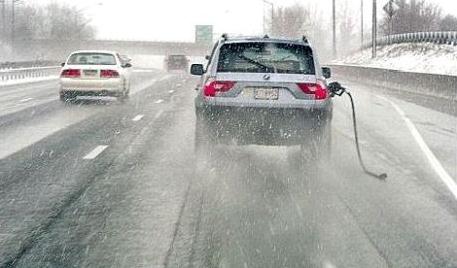
Despite Predictions of Harsh Winter, Most U.S. Drivers Will Travel Without Winter Tires This Season. This story from
The Auto Channel was a bit of a head-scratcher: only 1 in 4 vehicles have snow tires or all season tires? Here's a clip: "
Winter
weather officially has arrived, but it won't stop Americans from
hitting the road this holiday travel season. According to an online
survey commissioned by Bridgestone and fielded by Harris Poll in
September 2014*, 90 percent of Americans have driven in winter weather
at some point. Among the 84 percent of snowbelt drivers who will prepare
their car for winter weather, only a quarter (25 percent) plan to equip
or already have equipped their vehicle with winter tires this season..."
New MSU Study Shows Tornadoes Occurring Earlier in "Tornado Alley". More evidence of a slowly warming climate.
The Roundup has the article; here's the introduction: "
Peak
tornado activity in the central and southern Great Plains of the United
States is occurring up to two weeks earlier than it did half a century
ago, according to a new Montana
State University study whose findings could help states in "Tornado
Alley" better prepare for these violent storms. Tornado records from
Nebraska, Kansas, Oklahoma, and northern Texas -- an area of high
tornado activity dubbed "Tornado Alley" -- show that peak tornado
activity is starting and ending earlier than it did 60 years ago..."
High School Football Alters Brains, Even Without Concussions.
Bloomberg Businessweek has the troubling story - here's an excerpt: "
A
single high-school football season of heavy hits, even without a
concussion, led to observable brain abnormalities in a study, the latest
evidence to raise questions about the long-term consequences of the
popular game. The findings from 24 high-school athletes suggest that a
series of small, successive blows to the head can prompt changes in the
brains of young people. The research was presented today at the annual
meeting of the Radiological Society of North America..."
File photo credit: Tammy Ljungblad/Kansas City Star/MCT.
Why Everything You Think About Aging May Be Wrong. Wait, assuming you're still relatively healthy, things get better with age? Here's an excerpt from
The Wall Street Journal: "...
In
fact, a growing body of evidence indicates that our moods and overall
sense of well-being improve with age. Friendships tend to grow more
intimate, too, as older adults prioritize what matters most to them,
says Karen Fingerman, a professor of human development and family
sciences at the University of Texas at Austin..."
74 Of The Most Amazing News Photos of 2014.
BuzzFeed News has a collection of remarkable photos taken this year, including the one above: "
A high wave hits the bank of Qiantang River in China’s Hangzhou, Zhejiang, province on Aug. 13." Photo credit: Xu Kangping/EPA.
3 Surprising Secrets To A Long Marriage.
PBS's Next Avenue takes a look at unions that survive the test of time; here's a clip: "...
I
asked hundreds of elders what is most important for a long and happy
marriage and their advice was just about unanimous: Opposites may
attract, but they don’t make for great and lasting marriages. Based on
their long experiences both in and out of love relationships, their
first lesson is this: You are much more likely to have a satisfying
marriage for a lifetime when you and your mate are fundamentally
similar. And the most important thing to look for is similarity in your
core values..."
TODAY: Plenty of sun, still brisk. Feels like 5 above. Winds: West 10-15. High: near 20
WEDNESDAY NIGHT: Clear and chilly. Low: 8
THURSDAY: Partly sunny, not as cold. High: 28
FRIDAY: Mix of clouds and sun, still quiet. Wake-up: 17. High: 30
SATURDAY: Intervals of sun. Good travel weather. Wake-up: 17. High: 31
SUNDAY: Some sun, dripping icicles. Wake-up: 25. High: 37
MONDAY: Lot's of sun. Nothing on Doppler. Wake-up: 27. High: 33
TUESDAY: Partly sunny. Happily bored. Wake-up: 19. High: 31
* photo courtesy of Brian Gustafson.
Climate Stories...
Hottest Year Ever Adds Urgency to Drive for Climate Steps. Here's a clip from a story at
Bloomberg: "...
Never
has it been so clear that the window of opportunity to reduce emissions
is closing quickly.” Greenhouse gas emissions reached a record high in
2013, the UN’s World Meteorological Organization said in September.
Global temperatures are on track to be the hottest since records began,
surpassing 2010, according to preliminary data the agency will publish
Dec. 3. The January through October period was the hottest ever..."
Climate 101: How Global Warming Is Making Heatwaves and Precipitation More Extreme.
Meteorologist Andrew Freedman has a good summary of what can and can't
be attributed to a warmer, wetter atmosphere, courtesy of
Mashable. Here's an excerpt that caught my eye: "...
Every
weather event that occurs today takes place in an atmosphere that has
been fundamentally altered by human activities, such as the burning of
fossil fuels like coal and oil for energy. As a result, there is now
more carbon dioxide, the main long-lived greenhouse gas, in the air than
there has been at any other point in human history.
There is also more water vapor in the air, which provides energy for
storms and can lead to more extreme precipitation events. In other
words, all
weather now occurs against a different backdrop, with different
ingredients, than it did before. It's like cooking a dish with slightly
different ingredients to start with, every time..."
Hotter, Weirder: How Climate Change Has Changed Earth. AP and CBS News have the story - here's a clip that got my attention: "...Since 1992, there have been more than 6,600 major climate, weather and water disasters worldwide,
causing more than $1.6 trillion in damage and killing more than 600,000
people, according to the Centre for Research on the Epidemiology of
Disasters in Belgium, which tracks the world's catastrophes. While
climate-related, not all can be blamed on man-made warming or climate
change. Still, extreme weather has noticeably increased over the years,
says Debby Sapir, who runs the center and its database. From 1983 to
1992 the world averaged 147 climate, water and weather disasters each
year. Over the past 10 years, that number has jumped to an average 306 a
year..."
Poll: 83% of Americans Say Climate Is Changing. Here's the intro to a story at
USA TODAY:
"Eight out of 10 Americans now believe the climate is changing,
according to a new survey conducted for Munich Re America, the world's
largest reinsurance firm. "Our survey findings indicate that national
sentiment over whether or not climatic changes are occurring has finally
reached a tipping point," said Tony Kuczinski, president of Munich Re
America..." (Image: Munich Re America).
Are We Missing The Big Picture on Climate Change? Here's a snippet from a thought-provoking article at
The New York Times Magazine: "...
Over
all, climate change tends to be reported as abstract explanations about
general tendencies and possible outcomes. It’s a difficult subject to
tell and to take in. The scientific side is complicated. Understanding
it requires the ultimate in systems thinking: the cumulative effect of
all of us burning coal and oil impacts things far away and yet to come. A
lot of it is hard to see. If you didn’t pay attention to a species
beforehand, you won’t have noticed its decline. There’s no direct,
tangible way for you to know the ocean is 30 percent more acidic than it
used to be, or that it is expected to rise several feet in this century
and then keep rising..." (File image: NASA).
African American Religious Leaders Join The Fight Against Climate Change. Here's an excerpt from an interview at
madamenoire.com: "...
The
African American church has historically served as a moral leader on
the most pressing issues of our time - from voting rights to gun
violence. The church isn't going to now sit aside and watch as polluters
jeopardize the health and safety of our children and grandchildren.
Climate change not only imperils the most marvelous natural features of
God's creation, it threatens to cause human suffering of a magnitude
that we cannot tolerate..."
George Schultz Gone Solar. Now That's a Sign of Thawing In The U.S. Climate Debate. Not all Republicans are climate change deniers, it turns out. Here's an excerpt from
Bloomberg Businessweek: "...
Two
years ago, Shultz was alarmed when a retired Navy admiral showed him a
video of vanishing Arctic sea ice and explained the implications for
global stability. Now, the former Cold Warrior drives an electric car,
sports solar panels on his California roof and argues for government
action against global warming at clean-energy conferences. Living a life
powered “on sunshine,” Shultz, at 93, has a message for the doubters
who dominate his own party: “The potential results are catastrophic,” he
said in an interview. “So let’s take out an insurance policy...” (File photo:
greentechmedia.com).

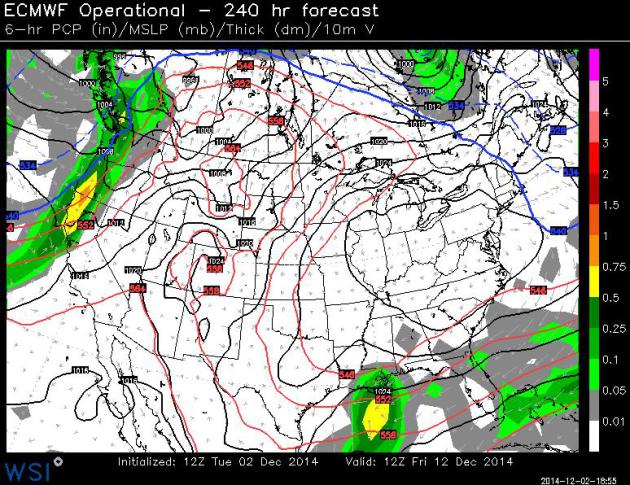
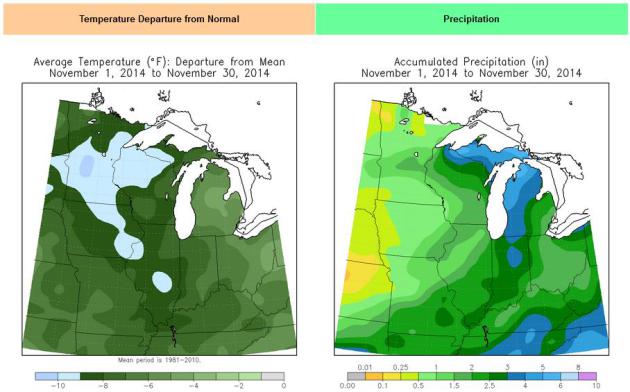

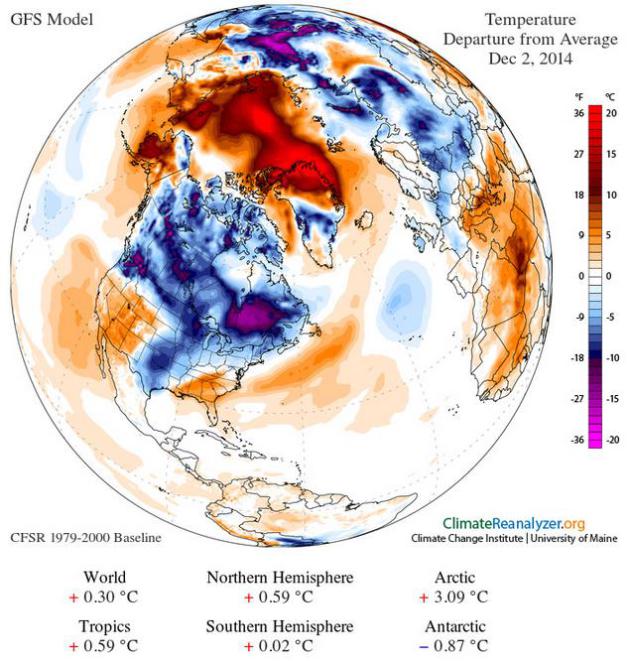

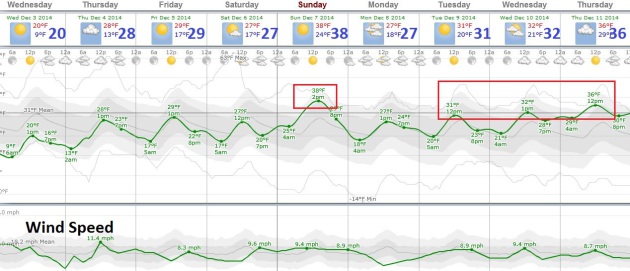
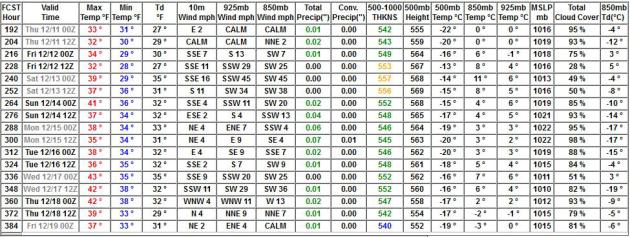
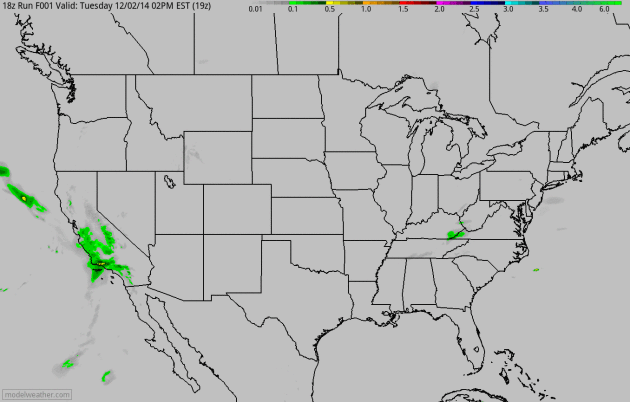

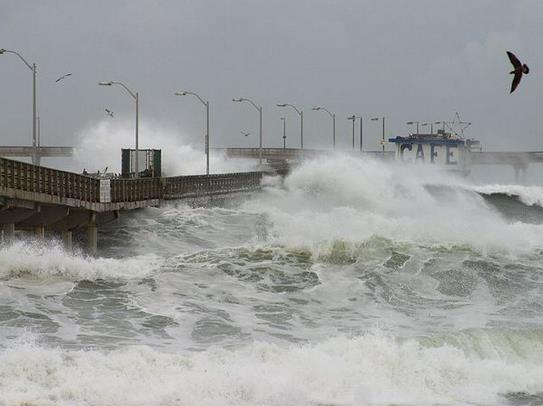

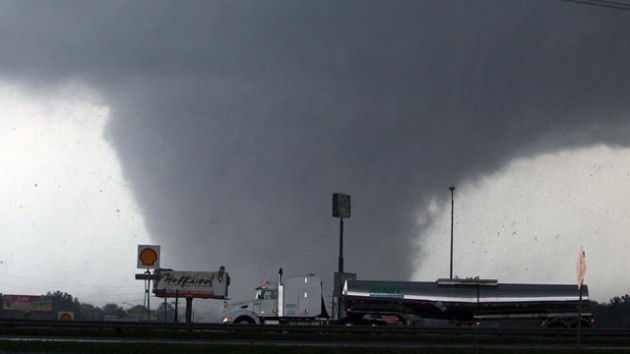
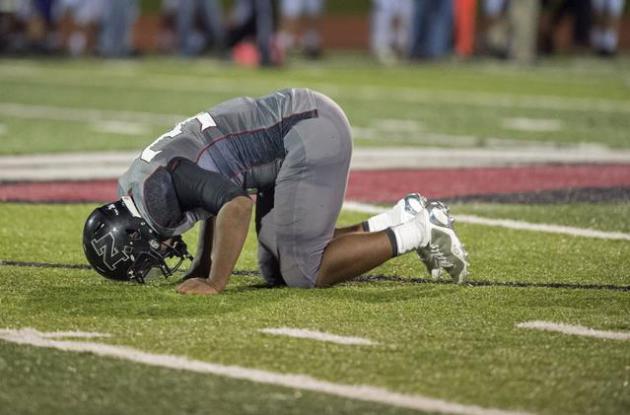

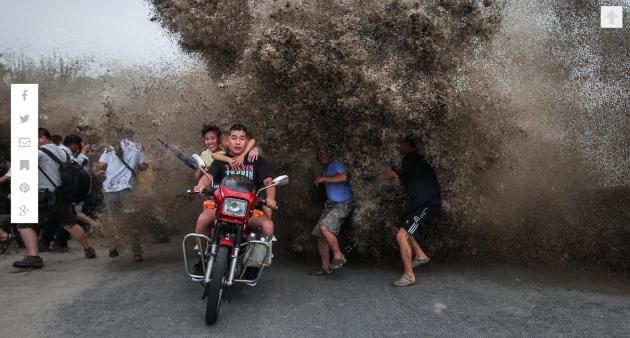
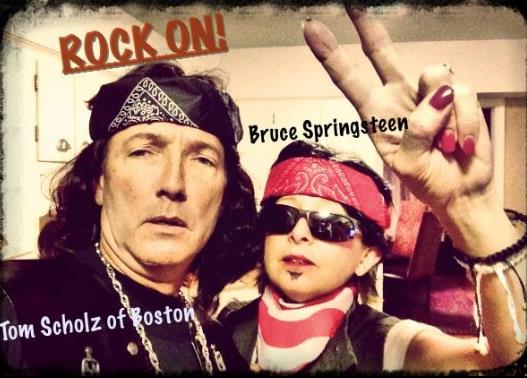
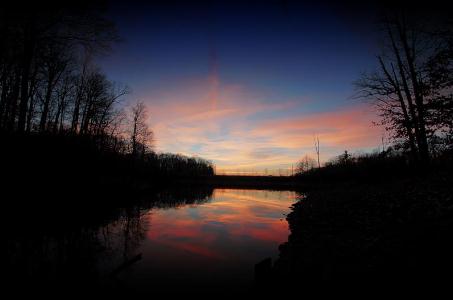
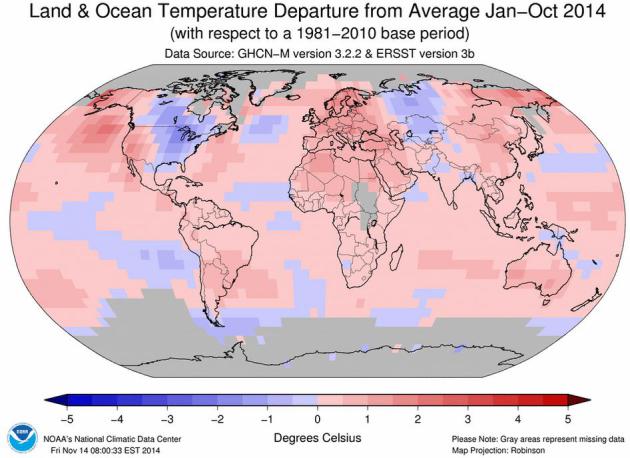
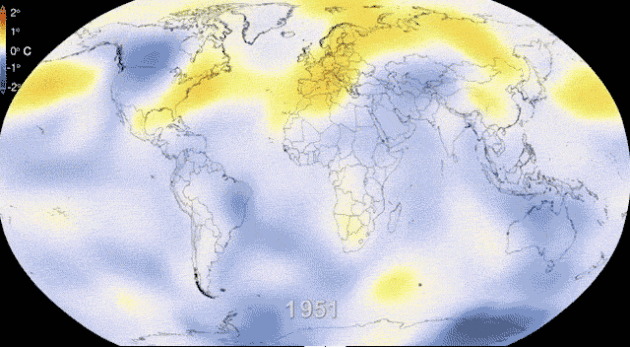

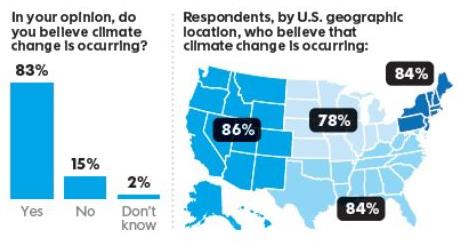
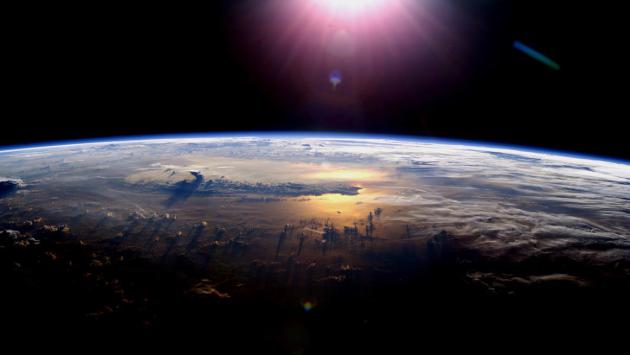

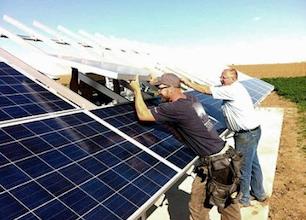
No comments:
Post a Comment